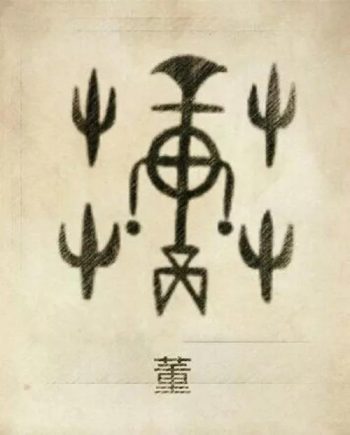The Dong(dǒng) surname is more than just a family name—it’s a 3,000-year-old story of resilience, cultural fusion, and innovation. From ancient legends to modern achievements, the Dong family has played a pivotal role in shaping Chinese history and culture.

Ⅰ、Surname origin:
1. Imperial bestowal of surname: the legend of Dongfu and the dragon
The Dong surname traces its lineage to Dong Fu , a descendant of the ancient Emperor Zhuanxu. Known for his skill in taming dragons (or horses), Dong Fu was granted the surname “Dong” by Emperor Shun and given the territory of Zongchuan (modern-day Shandong Province).
2. Official titles as surnames: The glory of the Zhou Jin historian
During the Spring and Autumn period, a Zhou Dynasty official named Xin You served as a historian in the Jin State. His descendants adopted “Dong” as their surname, honoring his role in “supervising” historical records. Among them, Dong Hu became famous for his integrity in recording history, earning praise from Confucius as a “model historian.”
3. Geographical and Ethnic Roots
Land-Based Origins: Some Dong families trace their name to the ancient lands of Dong (modern-day Shandong and Shanxi).
4. Ethnic Integration:
Over centuries, groups like the Xiongnu, Xianbei, and Manchu adopted the Dong surname, enriching its diversity.
Ⅱ、Historical Figures:
1. Ancient models
Dong Hu (6th Century BCE): A historian whose commitment to truth earned him the title “Model Historian.”
Dong Zhongshu (179–104 BCE): A philosopher who championed Confucianism, shaping China’s cultural and political landscape for centuries.
Dong Qichang (1555–1636): A master painter and calligrapher whose theories influenced Chinese art history.
2. Modern Leaders
Dong Cunrui (1929–1948): A revolutionary martyr celebrated for his bravery during the Chinese Civil War.
Dong Jianhua: The first Chief Executive of Hong Kong, instrumental in implementing the “One Country, Two Systems” policy.
Dong Mingzhu (b. 1954): A transformative business leader who turned Gree Electric into a global powerhouse.
Ⅲ、Cultural Significance:
1. Ancestral Homelands
Key regions like Longxi (Gansu) and Jiyin (Shandong) served as cultural hubs for the Dong clans.
Family Philosophies
The “Straight Brush Hall” tradition, inspired by Dong Hu’s integrity, emphasizes:
“Truth is the foundation of history, and integrity is the cornerstone of character.”
Many Dong family mottos, such as:
“Better to be an honest official than a corrupt millionaire,”
reflect a commitment to ethics and education.
2. Modern Legacy:
Migration Patterns
Ancient: Spread along trade routes to regions like Sichuan and Fujian.
Modern: Over 10 million bearers worldwide, with significant populations in Shandong and Henan provinces.
Contemporary Achievers
Dong Xiwen (1914–1973): A renowned painter whose works, like The Founding Ceremony of the Nation, captured pivotal moments in Chinese history.
Dong Jiaohong: A leading medical expert in precision surgery.
Conclusion:
The evolution of the Dong surname is a microcosm of the Chinese civilization transitioning from the mythological era to the modern age, as as a testament to the integration of agricultural civilization and nomadic culture. From the legend of taming the dragon to the spirit of integrity, from the Confucianodoxy to modern innovation, the Dong surname clan has engraved a unique cultural gene in the long river of history with an inclusive and eclectic attitude.